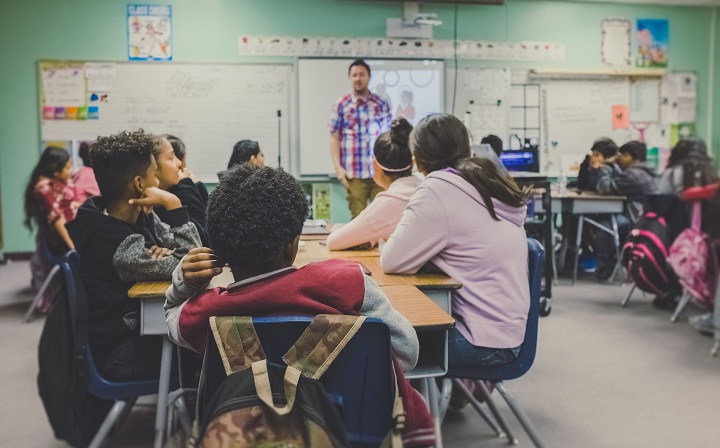Imagine a classroom full of bright and motivated students who are eager to learn and thrive in their educational path. Sounds like utopia? In fact, there is a solution that can bring that vision into life. An enriched learning experience is a great way to inspire students to follow their passions, develop enthusiasm, find new interests, and apply their skills in different settings.
What is An Enriched Education?
Enriched learning is an educational approach that aims to create meaningful and substantial study opportunities inside and outside the classroom. Such experience is designed to complement traditional academic programs and exploits people’s innate desire to grow, develop, and succeed. It fosters deeper engagement and a more profound comprehension in the areas that instill a student’s natural curiosity.

Expanded learning offers a well-rounded knowledge-base that adolescents will need to succeed as family and community members, citizens, and workers in a global world. Institutions that work within this paradigm tend to provide administrative support and resources to implement and use new technologies to enhance educational environments.
Co-curricular programs encompass such activities as participating in internships or fieldwork, enrolling in extracurricular coursework, performing community service, or volunteer work. Students can also seize the opportunity to study abroad, where they can experience diversity and get valuable insights about themselves and other cultures.
Why is Enriched Learning So Important?
An enriched education can have a positive impact on learners’ social, emotional, cognitive, and academic growth, opening the way to new opportunities, adventures, or prospective career paths. It helps students reach their full potential through the application of these strategies:
1. Enabling Personalized Learning
One of the distinguishing features of enriched education is that the desire to learn comes from students themselves. The primary focus of the after school programs is developing a talent or exploring an igniting interest that is overlooked during the typical school day.
Students may choose to delve deeper into topics like science, local culture, enterprise, diversity, history, and world heritage. They may decide to join a music class, drama society, literature club, sports activity group, coding camp, or robotics workshop. Whatever their choice is, it provides purposeful and rewarding learning that is perfectly tailored to a student’s pursuits.
2. Encouraging Further Study
College education is a fast-paced track. To keep up, students have to constantly jump from one subject to another, consuming tons of information they’ll need to pass the next test. There often isn’t enough time to reflect on what they’ve learned and make that knowledge an integral part of their life experience.
Expanded education, on the other hand, funnels student’s effort to go beyond the surface, encouraging deeper learning. Well-implemented co-curricular activities embolden students to widen their areas of interest and inspire them to commit themselves to lifelong learning.
As students acquire new information related to the topics they are engrossed in, it can also make an impact on their comprehension of school curricula. This way, enriched learning can lead to sustained academic improvement, lower dropout rates, greater on-time promotion, and increased assignment completion.
However, if it’s only a writing block that keeps you from performing well in class, you can simply turn to write my college paper help service to get some pro assistance to come through in the clutch.
3. Placing Student at the Center of the Curriculum
A great learning experience is the one that affirms the students’ value and recognizes their achievements. Enriched education takes this principle to even greater heights. It not only acknowledges learners’ previous experiences but also raises their aspirations for future success.

As people don’t learn in the same way and at the same rate, it is important to create a clear structure for each student. Enriched programs enable instructors to define individual performance criteria, the scope of work, and progress outline for every aspiring professional in their class.
4. Promoting Diversity and Inclusivity
Enriched education pushes students out of their conventional learning environment. It encourages contact among individuals from different economic, social, racial, or ethnic backgrounds.
Co-curricular programs usually bring together people of different age or geographic locations who may have opposing political opinions, religious beliefs, and values. The mixed-up setting allows rich student exchange, augmenting emotional development and cultural awareness of each member of the group.
Furthermore, equitable and inclusive learning environments can offer a break from usual cliques or social status concerns students have to deal with in their day-to-day life.
5. Bolstering Social and Emotional Development
Social and emotional learning is an essential part of the educational process. Attending high-quality afterschool programs can help to build up competencies in those areas, which are the ultimate means of developing healthy identities.
Students immersed in an enriching learning environment tend to show more empathy for others and are capable of establishing and maintaining respectful and supportive relationships. They are more inclined to collaborate with their peers and instructors to achieve personal and collective goals.
Being in a secure and productive learning surrounding also helps enhance their independence, communication, and leadership skills. It’s fair to say that co-curricular programs equip students with the vital skill set they would need to thrive in the 21st-century workplace.



















